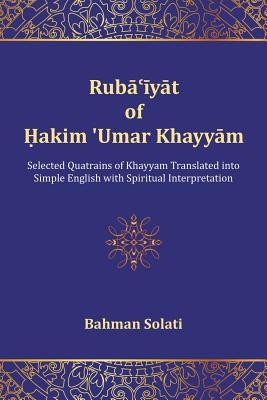
- We will send in 10–14 business days.
- Author: Bahman Solati
- Publisher: Universal Publishers
- Year: 2015
- Pages: 110
- ISBN-10: 1627340335
- ISBN-13: 9781627340335
- Format: 15.2 x 22.9 x 0.6 cm, softcover
- Language: English
- SAVE -10% with code: EXTRA
Reviews
Description
It is often said, quite appropriately, that Khayyām was the poet of fate. It would be a mistake, however, to call him a fatalist, at least according to our common understanding of this word. Scholars seeking to categorize his Rubāʿīyāt can themselves be grouped into two major schools of thought. The first claims that he was highly influenced by Islamic mysticism, particularly Sufism, and that his references to wine and lovers are allegorical representations of mystical wine and divine love. A second school of thought rejects this view, claiming that Khayyām's references to wine and lovers are very literal and sensual.
EXTRA 10 % discount with code: EXTRA
The promotion ends in 20d.21:32:55
The discount code is valid when purchasing from 10 €. Discounts do not stack.
- Author: Bahman Solati
- Publisher: Universal Publishers
- Year: 2015
- Pages: 110
- ISBN-10: 1627340335
- ISBN-13: 9781627340335
- Format: 15.2 x 22.9 x 0.6 cm, softcover
- Language: English English
It is often said, quite appropriately, that Khayyām was the poet of fate. It would be a mistake, however, to call him a fatalist, at least according to our common understanding of this word. Scholars seeking to categorize his Rubāʿīyāt can themselves be grouped into two major schools of thought. The first claims that he was highly influenced by Islamic mysticism, particularly Sufism, and that his references to wine and lovers are allegorical representations of mystical wine and divine love. A second school of thought rejects this view, claiming that Khayyām's references to wine and lovers are very literal and sensual.


Reviews